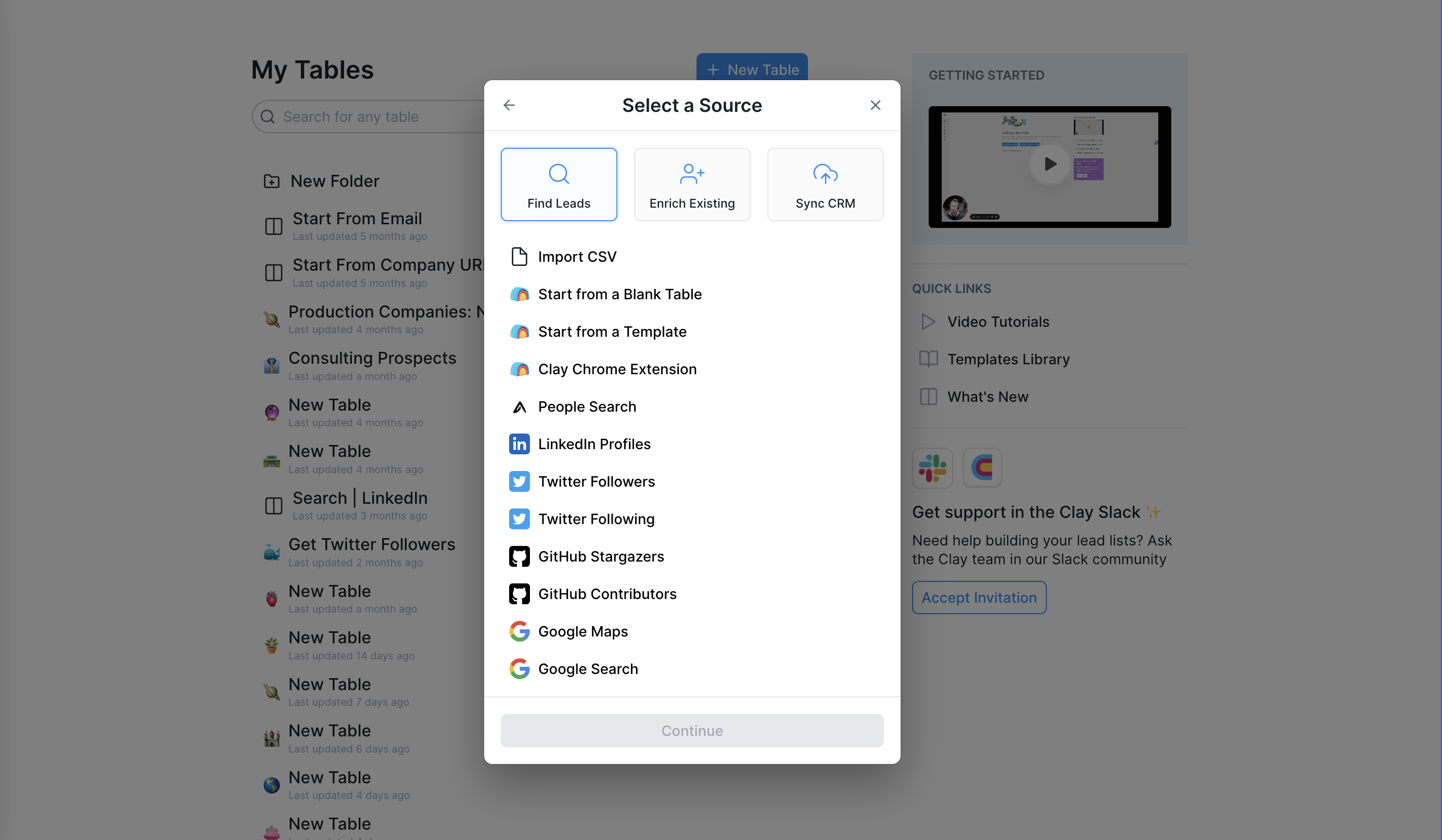Startup News
Economic Times
49

Image Credit: Economic Times
Cross-border digital payments startup Aspora raises $93 million from Sequoia Capital, Greylock and others
- Cross-border payments startup Aspora raised $93 million over three equity funding rounds between September 2024 and May 2025, valuing the company at $500 million.
- The London-based startup provides remittance services to immigrant diaspora and received its first institutional funding of $5.8 million from Hummingbird Ventures in 2022.
- Aspora raised an additional $5 million in September 2024, followed by a $35 million infusion led by Sequoia Capital and Greylock Partners.
- In the latest funding round, Aspora secured $53 million, with investments from Sequoia Capital, Greylock Partners, and Quantum Light, among others.
- Notable angel investors in the recent round included Balaji Srinivasan, Sundeep Jain, and Prasanna Sankar.
- The total amount raised by Aspora since its inception exceeds $98 million.
- Aspora, which started in Bengaluru, is now headquartered in London to aid global operations.
- This marks Sequoia Capital's first significant investment in an Indian-origin startup targeting Indian consumers.
- Sequoia Capital's India entity, now known as Peak XV Partners, is actively seeking early investment opportunities globally.
- Aspora was previously named Vance but rebranded due to brand identity issues after JD Vance's political venture.
- The startup serves around 250,000 users facilitating remittances to India and plans to expand its services to the US, Canada, Australia, and Singapore.
- Aspora's user acquisition strategy involves community referrals and performance marketing, keeping customer acquisition costs low.
- The company's presence extends across the UK, the European Union, and the UAE, with active user groups promoting the platform.
- Aspora competes with established players like Remitly and Wize, disrupting the traditional dominance of banks and Western Union in the remittance sector.
Read Full Article
2 Likes
Startup Pedia
111

Image Credit: Startup Pedia
Chennai tech startup gifts brand-new SUVs to 25 long-serving employees on 10th anniversary celebration
- Chennai-based tech startup Agilisium gifted 25 brand-new Hyundai Creta SUVs to its long-serving employees during its 10th Anniversary Prelude Event.
- The celebration took place at the company's office in Chennai's World Trade Centre with over 500 employees in attendance.
- Agilisium's official LinkedIn page showcased images from the event and conveyed a heartfelt message about the company's journey and employee recognition.
- Founder & CEO Raj Babu expressed gratitude to employees, highlighting their pivotal role in the company's success.
- Employees who had completed ten years of service were honored with SUVs as a gesture of appreciation and shared success.
- The initiative was aimed at acknowledging the spirit of generosity and long-standing commitment within the company's culture.
- Raj Babu emphasized that the company's achievements were a result of collective efforts and commitment from all employees.
- Besides the car gifts, Agilisium also announced performance-based pay hikes across all levels to recognize talent and dedication.
- The post on LinkedIn garnered viral attention with users praising the company's gesture and employee appreciation.
- Former employees and netizens commended Agilisium for valuing and recognizing its workforce, showcasing genuine appreciation.
Read Full Article
6 Likes
SiliconCanals
393

Image Credit: SiliconCanals
Wageningen-based Scope Biosciences lands fresh capital to advance CRISPR-based molecular diagnostics platform
- Wageningen-based Scope Biosciences secures follow-on investment from SHIFT Invest and Oost NL to advance its CRISPR-based molecular diagnostics platform.
- The company, founded by CEO Niek Savelkoul and headquartered in Wageningen, has raised a total of €6M in seed-stage funding along with support from European and Dutch innovation programs.
- Scope Biosciences' scopeDx technology enables ultra-precise, field-ready diagnostics without proprietary hardware, targeting agricultural and healthcare markets.
- The platform offers single-nucleotide detection in a portable format, aiding in earlier crop disease detection and improving healthcare testing accessibility.
- The company has received continued backing from existing investors SHIFT Invest and Oost NL, combining public and private funding to scale up its operations.
- The technology developed by Scope Biosciences originated as a spin-off from Wageningen University & Research, focused on molecular diagnostics.
- SHIFT Invest and Oost NL bring sector-specific and regional innovation expertise, respectively, to support the company's growth.
- Scope Biosciences aims to bring its technology closer to market with the additional funding secured for real-world diagnostic challenges.
- The company's innovative diagnostic platform is driving growth in the molecular diagnostics market, meeting the demand for point-of-care testing solutions.
- Scope Biosciences operates from the Wageningen Campus within the East Netherlands region, showcasing commercial success in agricultural diagnostics and expanding into healthcare applications.
- The company's efforts align with the regional innovation hub's goal to support global diagnostic solutions.
- CEO Niek Savelkoul expresses gratitude for continued support and highlights the company's commitment to scaling up and addressing diagnostic challenges.
- Associate at SHIFT Invest, Sophie van Weede, commends ScopeBio's progress in commercializing accurate diagnostic platforms and expanding into healthcare.
- Investment Manager at Oost NL, Maureen Haverkamp, expresses pride in supporting ScopeBio's growth and innovation in regional and global contexts.
- Scope Biosciences' technology offers promising solutions for agriculture and healthcare markets, leveraging CRISPR-based molecular diagnostics for effective testing.
- The company's success reflects its ability to provide on-site, precise diagnostics without the need for central laboratories, supporting faster and efficient testing processes.
Read Full Article
23 Likes
Inc42
322

Image Credit: Inc42
Apple India’s iPhone Suppliers Cross 20% Domestic Value Addition: Report
- Apple's iPhone suppliers in India have achieved over 20% domestic value addition, according to reports.
- Key contract manufacturers for Apple include Foxconn, Tata Electronics, Dixon, Pegatron, and Wistron.
- Apple exported 76% more iPhones worth INR 1.50 Lakh Cr from India in FY25 compared to the previous year.
- Apple has been engaging with Murugappa Group and Titan for iPhone camera modules sourcing.
- Foxconn reportedly exported iPhones worth $3.2 Bn from India, with a large percentage destined for the US.
- Apple is in discussions with Dixon to expand the iPhone assembly line.
- Tata Group will manage iPhone and MacBook repairs in India in partnership with Apple.
- Tata will take over after-sales repair operations from Wistron's Indian subsidiary, ICT Service Management Solutions.
- India's importance in Apple's global strategy is highlighted by these recent developments.
- The story will be updated soon.
Read Full Article
19 Likes
Inc42
282

Image Credit: Inc42
Ride-Hailing In Stress, Startup Funding Explodes & More
- India’s ride-hailing giants Ola and Uber face regulatory challenges in Goa and Karnataka, impacting their operations.
- Ongoing disputes include new rules requiring a license and local presence, ban on bike taxis in Karnataka, and rising competition.
- Struggles with pricing, driver unions, and government investigations add to Ola and Uber's woes in the market.
- In contrast, Indian startups saw a funding surge with $567.5 Mn raised, led by Groww and Spinny in the latest funding rounds.
- However, tech stocks faced losses, Zepto's warehouse ban was lifted, and tax officials are scrutinizing crypto-related tax evasion.
- Startup IPO filings are on the rise, while Rakesh Jhunjhunwala's estate exits Nazara and government considers EV localisation changes.
- Bootstrapped Reelies and altM's cleantech startup are making waves in the industry with new offerings and market expansions.
- From regulatory hurdles to funding heights, the Indian business ecosystem showcases a mixed landscape of challenges and opportunities.
Read Full Article
16 Likes
Medium
205

A Roast of Startup Entrepreneurs: The Valuation Voodoo and Their Misguided Mating Rituals
- The article humorously describes startup entrepreneurs, particularly targeting the stereotypical 'startup bro' persona like Chad or Landon Nickerson, who boast of app ideas like 'Uber for dog yoga' or 'Tinder for artisanal kombucha' before their startups actually exist.
- These entrepreneurs are portrayed as living in a fantasy world where buzzwords like 'disruption' and 'pivot' are thrown around, despite having little substance to show for their companies beyond a PowerPoint slide and a dream.
- The concept of 'valuation' in the startup world is criticized, highlighting how entrepreneurs inflate their company's worth with fictional figures to attract investors, often without substantial revenue or assets.
- Valuation is likened to a marketing tool used by startup bros to impress others, especially at trendy bars, but the article suggests that it's more about showmanship than actual financial success.
- The article points out how startup bros use inflated valuations as pickup lines, targeting individuals who might not understand the intricacies of startup finance, and emphasizes the disparity between valuation figures and actual liquid assets.
- It humorously critiques the practice of using startup valuations to impress others, suggesting that authenticity and honesty about the challenges of entrepreneurship would be more appealing than exaggerated numbers.
- The message to women is to be cautious of individuals who lead with their startup's valuation, as it may not reflect actual financial stability, and advises asking about the company's revenue instead.
- The article concludes with a humorous tone, acknowledging that while some entrepreneurs are genuinely building valuable companies, those who flaunt imaginary valuations are fair game for such playful criticism.
Read Full Article
12 Likes
Medium
76

Title: “Valuation Nation: How Startup Bros Use Imaginary Money to Impress Real Women”
- A startup's valuation is a supposed market worth, often inflated, which investors might pay if the company ever makes a profit.
- Valuation metrics include total addressable market, projected growth, and the founder's persuasiveness.
- Startup bros use valuation to impress by sounding rich and successful, emphasizing it over profits or customers.
- For women unfamiliar with venture capital, a high valuation may seem impressive but doesn't necessarily reflect reality.
- Red flags in the startup dating world include self-proclaimed 'visionaries' with no substantial product or revenue.
- Startup entrepreneurs use valuation as a way to create the illusion of success and attract partners who may not understand the startup world.
- Clarifying questions to ask a startup entrepreneur include inquiring about revenue, the company's actual product, and profitability timeline.
- Buzzwords like 'runway,' 'burn rate,' and 'AI-powered synergy' hint at potential issues with the startup.
- While a valuation may impress socially, it doesn't equate to financial stability or success in reality.
Read Full Article
4 Likes
Inc42
560

Image Credit: Inc42
Paytm & MobiKwik’s MDR Hopes: Will It Beat The UPI Paradox?
- Speculation arose about the Indian government implementing a merchant discount rate (MDR) on UPI transactions for players like Paytm and MobiKwik.
- The Finance Ministry denied these reports, causing a significant stock drop for Paytm and MobiKwik.
- Paytm's and MobiKwik's strategies heavily relied on the expectation of MDR coming into effect.
- The absence of MDR poses a profitability challenge for payments apps, leading to stock market concerns and revenue pressure.
- Fintech companies may need to innovate revenue streams beyond traditional financial products due to the elimination of MDR fees.
- Apps are exploring various monetization avenues like premium cross-border transfers, commerce-focused ecosystems, and subscription models.
- The UPI market continues to expand rapidly in terms of transactions and user base, reshaping revenue generation models for startups.
- Paytm is refocusing on being a payments app rather than a super app, facing competition from PhonePe and Google Pay in the evolving market landscape.
- Swiggy's potential inclusion in the MSCI India Standard Index could impact stock prices, with anticipated inflows and market dynamics.
- Recent market updates include IPO filings by Pine Labs, PhonePe selling stakes, and ArisInfra's upcoming listing.
Read Full Article
19 Likes
Economic Times
8

Image Credit: Economic Times
Quick commerce industry's hygiene headache explained
- Quick commerce platforms like Blinkit, Zepto, Instamart, etc., have launched numerous dark stores for ultra-fast delivery beyond groceries into electronics and pharmaceuticals.
- However, some dark stores face hygiene and food safety issues, as revealed by an FDA investigation in Pune.
- The Maharashtra FDA found hygiene lapses like fungal growth, expired products mixed with regular stock, and lack of valid licenses in dark stores.
- Regulations mandate a certain supervisor-to-worker ratio and regular training in dark stores, but compliance is challenging due to rapid expansion.
- Some quick commerce companies lack clear hygiene guidelines and struggle to handle expired products appropriately.
- While some companies claim to conduct third-party audits, cost-cutting measures sometimes result in in-house audits leading to food safety system breakdowns.
- India's dark store count is projected to reach 5,000-5,500 by FY26, with Blinkit leading with 1,301 dark stores as of March 31.
- Instamart has over 1,021 dark stores in 100+ cities, while Flipkart Minutes plans to expand to 800 dark stores by the end of the year.
Read Full Article
Like
Economic Times
281

Image Credit: Economic Times
Online pharmacies could face stricter check-ups
- The government is working on tightening regulation and scrutiny on online pharmacy platforms delivering medicines within 10–60 minutes.
- Complaints have risen over unverified prescriptions and lack of supervision on e-pharmacy platforms.
- Several e-pharmacy platforms have emerged with quick delivery services in various cities.
- Some platforms connect consumers with nearby medical stores, while others use dark stores for quick deliveries.
- Dark stores are under scrutiny by authorities for hygiene and storage issues.
- There are no specific regulations governing e-pharmacies currently.
- The government is drafting new laws to regulate online pharmacies.
- AIOCD has demanded the withdrawal of government notification allowing doorstep delivery of drugs.
- The government is considering withdrawal of doorstep delivery of drugs after the pandemic emergency phase.
Read Full Article
16 Likes
Economic Times
317

Image Credit: Economic Times
Qcomm fires up discounts with rivals getting quicker
- Increased competition in the quick commerce sector, led by online retailers like Amazon and Flipkart, is driving up discounts to record levels.
- As online platforms compete with similar user experiences, pricing has become a crucial factor, resulting in significant discounting and increased cash burn in the industry.
- Average discounts across categories have surged to 20–25% from below 10% two years ago on maximum retail price across various quick commerce platforms such as dairy and groceries.
- The intensifying competition with eight major players in the quick commerce space is cited as the primary reason for the escalating discounting trend.
Read Full Article
19 Likes
Economic Times
192

Image Credit: Economic Times
Quick commerce fires up record discounts with rivals getting quicker
- The quick commerce sector with players like Amazon and Flipkart is witnessing a rise in record discounts, leading to intense competition.
- Discounts across categories have surged to 20-25% on maximum retail price, compared to below 10% two years ago.
- Industry experts suggest that the increasing number of players, currently standing at eight, is driving this escalation in discounts.
- Analysts note that personal care products see the highest discounts, while dairy products have the lowest discount at 5%.
- Market leaders like Blinkit, Zepto, and Swiggy's Instamart are now facing competition from JioMart, Flipkart Minutes, and Amazon Now.
- Companies are focusing on building a substantial customer base and expanding into tier-II and tier-III cities rather than on short-term profitability.
- The quick commerce sector's monthly burn rate has increased significantly, with companies doubling their spending to expand their businesses.
- Morgan Stanley estimates that India's quick commerce market will reach $8 billion in 2024, expanding to $57 billion by 2030.
- Flipkart Minutes and Amazon Now are rapidly expanding their dark store networks for quick deliveries.
- Blinkit's CFO stated that market share gain is a priority over short-term profitability for the quick commerce platform.
- Companies like Zepto and Instamart offer higher discounts on bulk-buy offerings, aiming to incentivize larger basket sizes.
- These offerings result in cost savings for platforms and increased competitiveness against value retailers like Dmart.
- The competitive landscape in the quick commerce sector is expected to drive further discounting and cash burn in the near future.
- The sector's growth potential and expansion into smaller cities indicate a focus on long-term market presence and customer retention.
Read Full Article
11 Likes
TechCrunch
416

Image Credit: TechCrunch
The U.S. Navy is more aggressively telling startups, ‘We want you’
- The U.S. Navy's Chief Technology Officer, Justin Fanelli, has focused on streamlining processes to work with startups more efficiently, leading to quicker partnerships and innovation adoption.
- They now utilize an innovation adoption kit to bridge the gap from prototype to production, moving companies through evaluation, structured piloting, and scaling phases.
- The Navy now prioritizes leading with problems rather than predetermined solutions, encouraging novel approaches and technologies.
- Success stories include startups using automation to clear invoice backlogs rapidly and network improvements saving significant time for sailors.
- Areas of focus for the Navy include AI, alternative GPS, and legacy system modernization, aiming to modernize aging technology.
- Fanelli mentions budget allocations to emerging tech increasing over time, particularly in AI-related applications.
- Challenges include long budget cycles and the need for new solutions to replace existing systems to secure continued funding.
- The Navy's alignment with domestic manufacturing policies is seen as beneficial for resilience and reducing supply chain dependencies.
- Despite previous skepticism, Silicon Valley is increasingly receptive to partnering with the U.S. government, with a patriotic undertone in tech communities.
- Fanelli encourages more entrepreneurs and investors to engage with the Navy's innovation efforts, highlighting opportunities for collaboration.
Read Full Article
25 Likes
Siliconangle
139

Image Credit: Siliconangle
Clay reportedly raises new funding led by CapitalG on a $3B valuation
- Clay Labs Inc., an AI-driven sales and marketing startup, has raised a Series C round of funding on a $3 billion valuation led by CapitalG Management Co., an independent growth fund owned by Alphabet Inc.
- Founded in 2017, Clay offers a platform for managing relationships through AI-powered enrichment, research, and outreach automation.
- Clay's platform connects with multiple CRM systems and data sources to clean, update, and deduplicate contact records automatically.
- The AI services provided by Clay include personalized messaging, enabling users to craft targeted emails based on enriched data.
- The company caters to over 300,000 go-to-market teams, serving notable customers such as Canva, HubSpot, Dropbox, Uber, and more.
- Clay has raised a total of $102 million over four funding rounds, with existing investors including Meritech Capital Partners, Sequoia Capital, and First Round Capital.
Read Full Article
8 Likes
Medium
304
Image Credit: Medium
From Rant to Reality: Building a Real Product from a Real Problem
- A developer's close friend faced manual job application tracking issues at a company called XYZ.
- The developer created a tool to reduce manual work by parsing job descriptions and storing data locally.
- The tool's reliance on local storage led to performance issues and a lack of usability for the friend.
- The developer rebuilt the storage layer using Google Sheets API to improve usability and adoption.
- Initially avoiding cloud APIs for privacy and cost reasons, the developer switched to using the OpenAI GPT API for better performance and usability.
- Further enhancements included automating the job application process on Dice.com using Selenium and adding a semantic matching layer to submit only relevant job applications.
- Automated follow-ups with personalized emails were also integrated to improve recruiter responses.
- The developer shifted from browser automation to a lightweight Python GUI framework, Tkinter, for better compatibility and usability.
- The tool evolved into a product, leading the developer to license it to a staffing firm after positive feedback and successful deployment.
Read Full Article
18 Likes
For uninterrupted reading, download the app